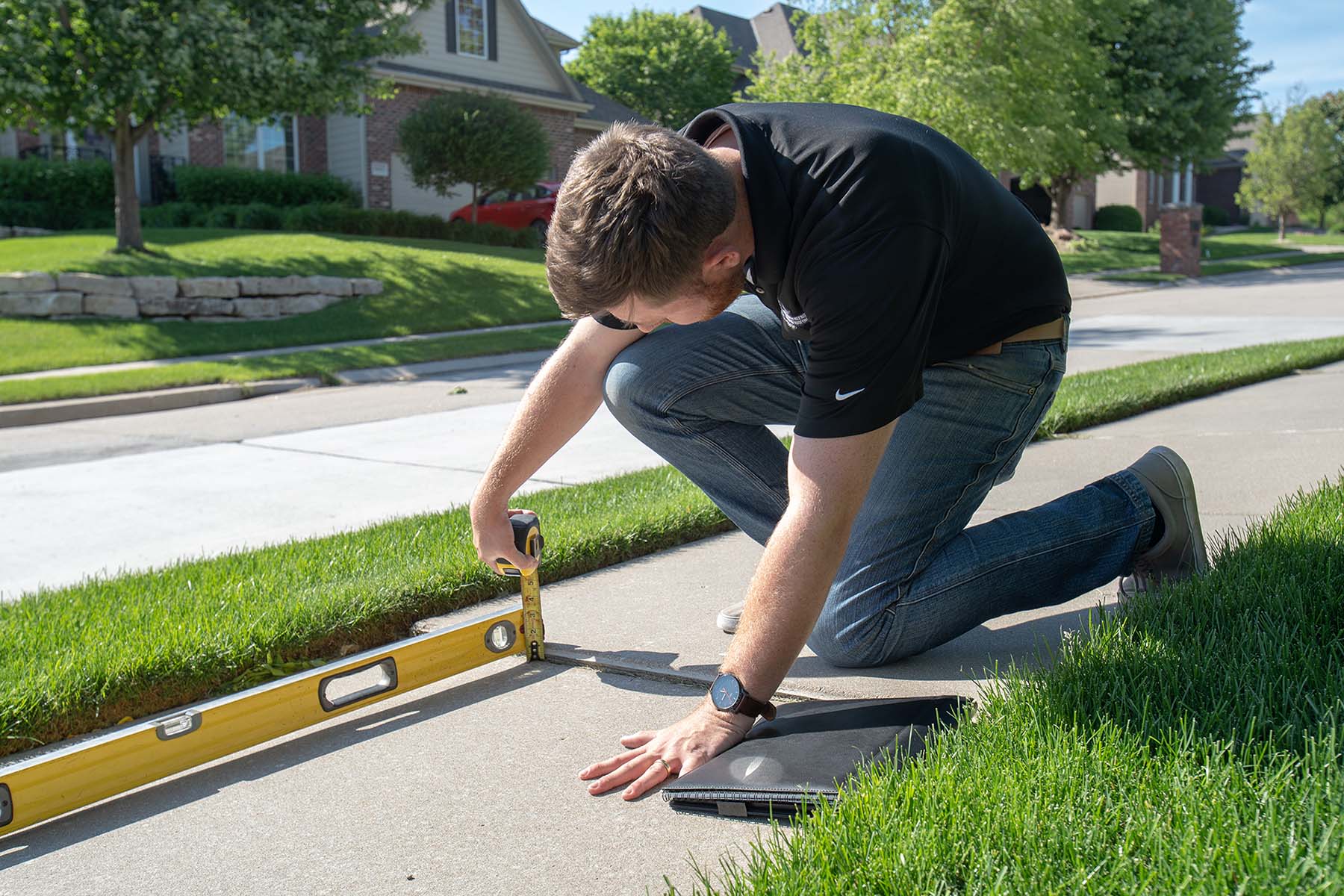Rust stains on basement walls or floors are often an early sign of moisture intrusion or structural stress. It’s important to know what they mean, what causes them, and how to protect your foundation.



What They Mean and When to Call a Foundation Expert
Rust stains in your basement might seem harmless at first, just a few orange streaks near a drain or a faint outline around a metal post. But in Iowa and Missouri homes, these marks are often an early sign of moisture intrusion and foundation risk.
If you’re seeing rust on basement walls, concrete floors, or around steel support posts, it usually means one thing: water is getting in. That moisture may be seeping through cracks, condensing on cold surfaces, or rising from the soil below. Over time, it can corrode metal, weaken concrete, and damage your home’s structural integrity.
At Anchored Walls, we’ve seen how small warning signs can point to much bigger problems. Rust doesn’t appear without a reason, and when it shows up below ground level, it’s often trying to tell you that your foundation needs attention.
Rust forms when metal is exposed to moisture and oxygen over time. In a basement, that moisture doesn’t always show up as standing water. It can come from high humidity, soil moisture pushing through foundation walls, or condensation on cold surfaces.
In Iowa and Missouri, seasonal changes and expansive clay soils make moisture problems more common. When water collects around the foundation, it finds its way in through cracks, porous concrete, or hidden gaps. Once that moisture meets exposed metal, rust begins to form.
Depending on where the stains appear, they may point to different types of foundation issues:
Rust is persistent. It builds slowly, often going unnoticed until the conditions that caused it have already been present for months.
Rust may start as a surface stain, but it often points to deeper issues with your foundation. Moisture intrusion can weaken metal components, corrode rebar, and accelerate the deterioration of concrete walls and support structures. If the problem is ignored, it can lead to costly repairs or even structural instability.
Here are a few signs that rust in your basement could be a symptom of a larger foundation issue:
Even if these signs seem minor now, they often signal movement, stress, or hidden moisture that will continue to worsen over time.
Not all orange stains in a basement are rust. In some homes, especially those with high water tables or persistent seepage, the culprit might be iron ochre, a thick, reddish sludge caused by naturally occurring iron bacteria in the soil.
Iron ochre forms when iron-rich groundwater interacts with oxygen and organic material. The result is a jelly-like buildup that often collects in sump pits, interior drain lines, or along the base of foundation walls. It can stain concrete, clog drainage systems, and produce a strong, musty odor.
While iron ochre isn’t harmful to people, it’s a sign that water is actively entering your basement. Just like rust, it signals an ongoing moisture problem that needs to be addressed.
If you're unsure whether you're seeing rust or iron ochre, a professional inspection can tell you what’s going on and where the moisture is coming from.
Rust in a basement isn’t just a cosmetic issue. It’s a warning sign that moisture is reaching places it shouldn’t, and it’s often the first visible clue that your foundation may be vulnerable.
Here’s why rust should never be overlooked:
It reveals hidden water intrusion.
Even without standing water, rust confirms that moisture is present. It could be coming through porous concrete, settling into cracks, or condensing on cold surfaces. Over time, that water can lead to mold growth, damaged finishes, and compromised air quality.
It signals possible structural concerns.
If rust is forming on steel posts, wall anchors, or reinforcement bars within concrete, those components may be weakening. As metal corrodes, it loses strength. If the rust is affecting parts of your foundation system, it can reduce long-term stability and increase the risk of movement or failure.
It often gets worse with time.
Rust is progressive. The longer moisture remains, the deeper the corrosion can go, spreading through surfaces, staining concrete, and eating away at vital supports. What starts as a small stain can lead to cracked walls, shifting structures, and expensive repairs.
At Anchored Walls, we understand that rust in a basement is rarely just about surface stains. It’s often a symptom of deeper moisture problems or early signs of structural stress, and those problems don’t go away on their own.
With more than 40 years of experience in Iowa and Missouri, our team specializes in identifying where water is getting in, how it’s affecting your foundation, and what needs to be done to stop it. Whether you’re dealing with rust on support posts, bowing walls, or foundation cracks, we’ll help you find the cause and fix it the right way.
Our solutions include:
We don’t just patch problems. We protect your home from further damage and restore lasting peace of mind.
If you’ve noticed rust stains in your basement or you’re not sure what those marks mean, it’s time to take a closer look. Rust is often the first visible sign of moisture reaching your foundation, and addressing it early can help prevent major damage down the line.
Anchored Walls has been serving homeowners across Iowa and Missouri for more than 40 years. We offer free foundation inspections, honest answers, and customized solutions to keep your home protected.
Schedule your inspection today and let one of our local foundation repair specialists evaluate your basement, identify any hidden risks, and recommend the best path forward.



By submitting this form and signing up for texts, you consent to receive text messages from Anchored Walls at the number provided, including messages sent by auto dialer. These may include messages related to estimates, project updates, appointment scheduling, and promotional offers. Consent is not a condition of purchase. Msg & data rates may apply. Msg frequency varies. Unsubscribe at any time by replying STOP or clicking the unsubscribe link (where available) and no further messages will be sent. Reply HELP for help. Information will not be shared with third parties for marketing or promotional purposes. Privacy Policy